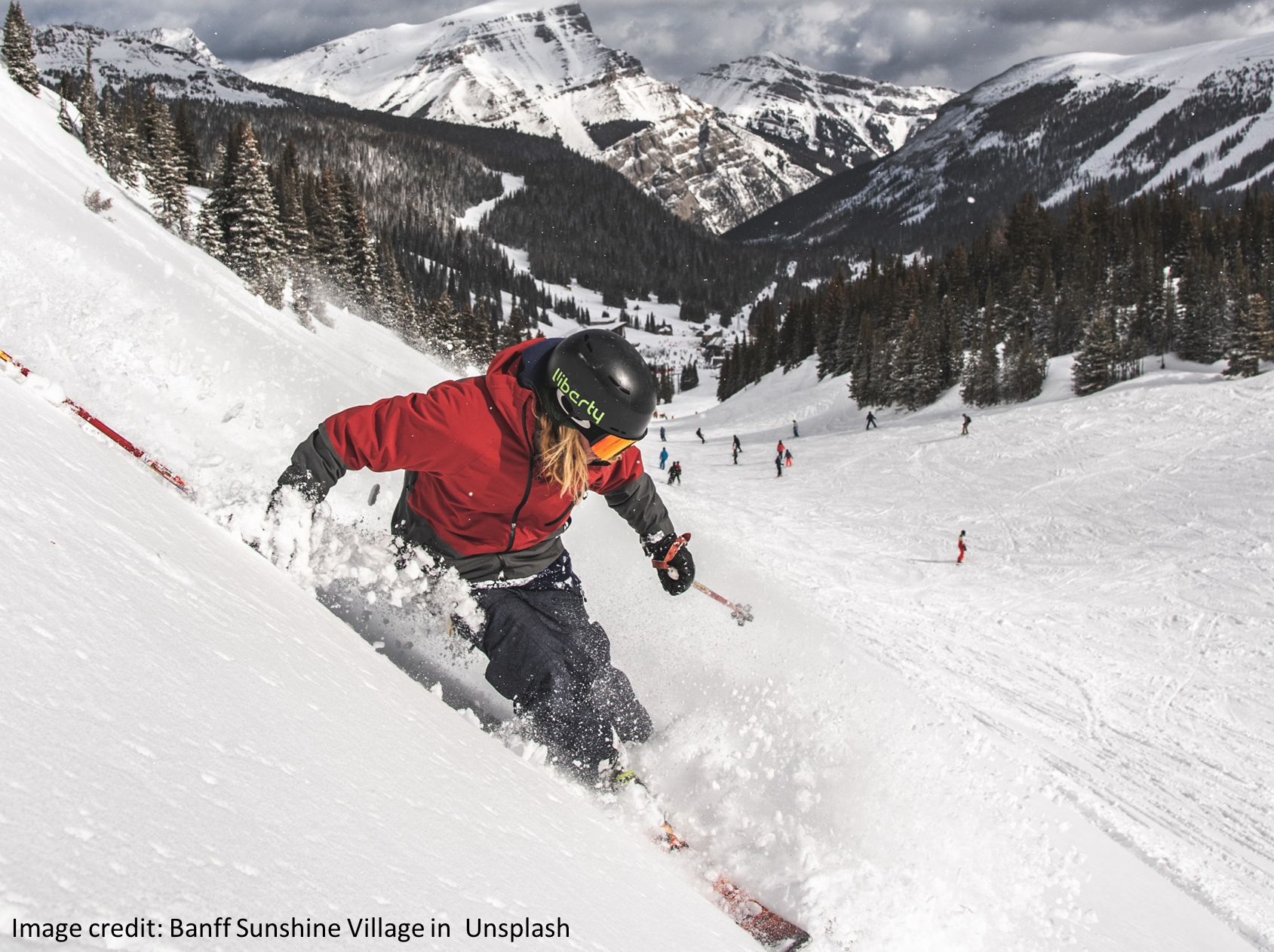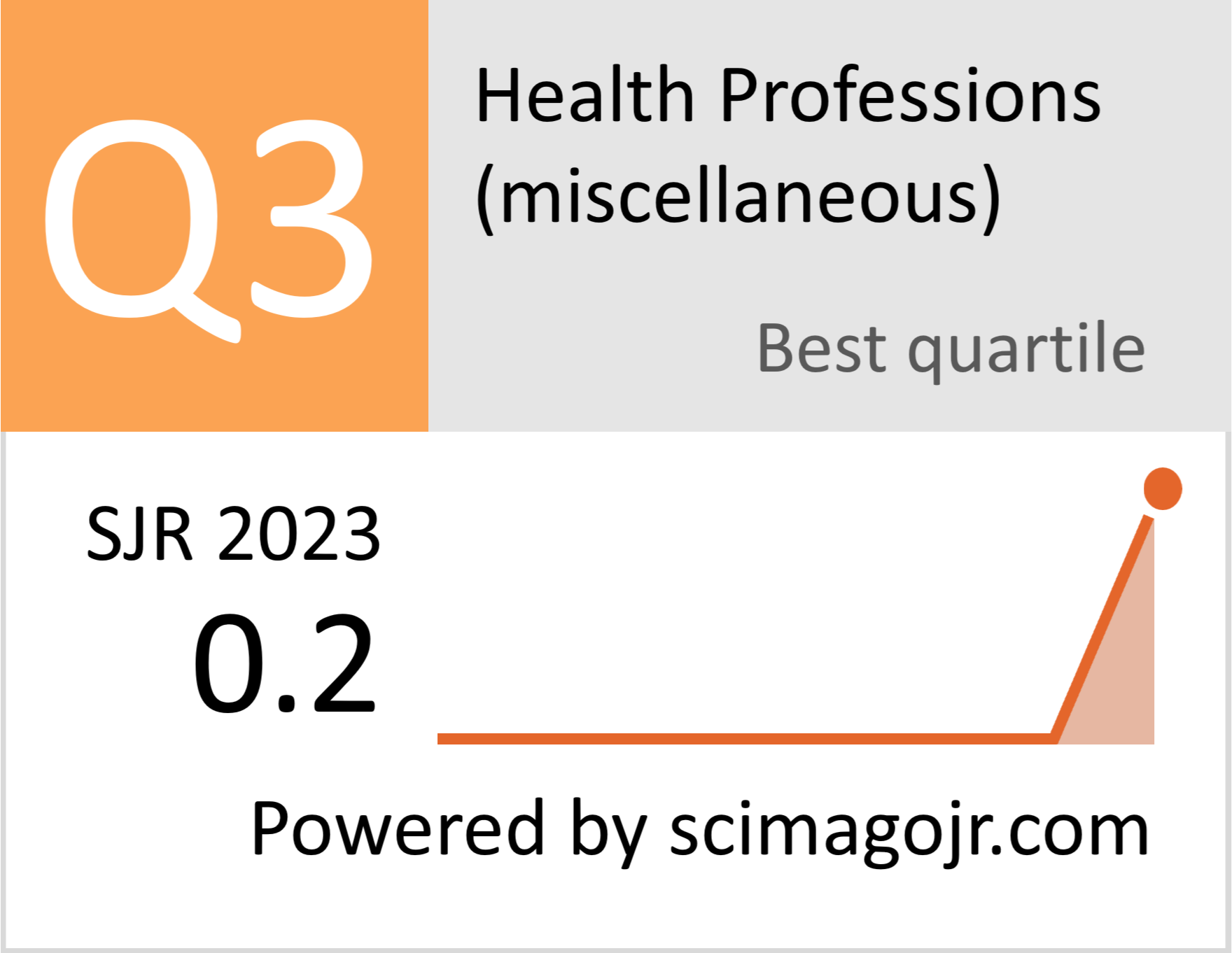Development of Physical Fitness Through Simulation Exercises for Ski Racers Aged 13-14. Non-Randomized Quasi-Experimental Study
Desarrollo de la condición física mediante ejercicios de simulación para corredores de esquí de 13-14 años. Estudio cuasi-experimental no aleatorizado

This work is licensed under a Creative Commons Attribution-NonCommercial-NoDerivatives 4.0 International License.
Show authors biography
Introduction. In recent decades, the level of ski performance in Russia has significantly decreased. This poses new challenges in the preparation of athletes for competitions and the training process.
Objective. To analyze the effects of simulation training tools on the physical condition of ski runners between 13 and 14 years.
Methods. Quasi-experimental, non-randomized study. 40 cross-country skiers between the ages of 13 and 14 belonging to the Korshik Village sports school (Russia) were assigned to a control (n=20) and experimental (n=20) group. Classes in the control group were carried out according to the usual training plan and in the experimental group simulation exercises were used. Control tests include pull-up, squats, long jump two legs, simulated 100 meters climb and a 500-meter run test.
Results. The control group did not present significant improvements (p>0.05), while the experimental group reported significant improvements in pull-up (22.2%; p<0.05), squat (5.9%; p<0 .05), long jump two legs (6.8%; p<0.05), 100-meter climbing simulation (7.8%; p<0.05) and 500-meter run (4.2 %, p<0.05).
Conclusion. If in the preparatory period a series of simulation exercises is included in the training program for skiers aged 13-14, the level of physical fitness of the athletes will improve significantly.
Article visits 542 | PDF visits 53
- Batalov AG, Senatskaya VG, Shchukin AV. Competitive effectiveness in 50 km skiing marathon at winter Olympic Games and World Championships during the whole period of their organization (since 1924 till 2019). Russ J Phys Educ Sport [Internet]. 2020;15(2):9-14. doi: https://doi.org/10.14526/2070-4798-2020-15-2-9-16 DOI: https://doi.org/10.14526/2070-4798-2020-15-2-9-16
- Myakinchenko EB, Kriuchkov AS, Adodin NV, Feofilaktov V. The annual periodization of training volumes of international-level cross-country skiers and biathletes. Int J Sports Physiol Perform [Internet]. 2020 Ago 19;15(8):1181-8. doi: https://doi.org/10.1123/ijspp.2019-0220 DOI: https://doi.org/10.1123/ijspp.2019-0220
- Philippe M, Ruedl G, Feltus G, Woldrich T, Burtscher M. [How Frequent and why are Skiers and Snowboarders Falling?]. Sportverletz Sportschaden [Internet]. 2014;28(4):188-92. doi: https://doi.org/10.1055/s-0034-1366874 DOI: https://doi.org/10.1055/s-0034-1366874
- Meyers MC, Laurent Jr CM, Higgins RW, Skelly WA. Downhill Ski Injuries in Children and Adolescents. Sports Med [Internet]. 2007;37(6):485-99. doi: https://doi.org/10.2165/00007256-200737060-00003 DOI: https://doi.org/10.2165/00007256-200737060-00003
- American College of Sports Medicine. Progression Models in Resistance Training for Healthy Adults. Med Sci Sports Exerc [Internet]. 2009;41(3):687-708. doi: https://doi.org/10.1249/MSS.0b013e3181915670 DOI: https://doi.org/10.1249/MSS.0b013e3181915670
- Casado A, González-Mohíno F, González-Ravé JM, Foster C. Training Periodization, Methods, Intensity Distribution, and Volume in Highly Trained and Elite Distance Runners: A Systematic Review. Int J Sports Physiol Perform [Internet]. 2022;17(6):820-33. doi: https://doi.org/10.1123/ijspp.2021-0435 DOI: https://doi.org/10.1123/ijspp.2021-0435
- Issurin VB. New Horizons for the Methodology and Physiology of Training Periodization. Sports Med [Internet]. 2010;40(3):189-206. doi: https://doi.org/10.2165/11319770-000000000-00000 DOI: https://doi.org/10.2165/11319770-000000000-00000
- Vahtra E, Pind R, Mäestu E, Purge P, Kaasik P, Mäestu J. The Effect of Different Periodization and Modes of Concurrent Strength and Endurance Training on Double Poling Performance and Body Composition in Adolescent Cross-Country Skiers. Sports (Basel) [Internet]. 2022 Ene 20;10(2):1-10. doi: https://doi.org/10.3390/sports10020015 DOI: https://doi.org/10.3390/sports10020015
- Karlsen T, Solli GS, Samdal ST, Sandbakk Ø. Intensity Control During Block-Periodized High-Intensity Training: Heart Rate and Lactate Concentration During Three Annual Seasons in World-Class Cross-Country Skiers. Front Sports Act Living [Internet]. 2020;2:1-9. doi: https://doi.org/10.3389/fspor.2020.549407 DOI: https://doi.org/10.3389/fspor.2020.549407
- Grzebisz-Zatońska N, Grzywacz T, Waśkiewicz Z. The Influence of Endurance Training on the Lipid Profile, Body Mass Composition and Cardiovascular Efficiency in Middle-Aged Cross-Country Skiers. Int J Environ Res Public Health [Internet]. 2021 Oct 18;18(20):1-10. doi: https://doi.org/10.3390/ijerph182010928 DOI: https://doi.org/10.3390/ijerph182010928
- Suzuki E, Ohya T, Ito R, Matsumoto T, Kitagawa K. Physiological Responses in Alpine Skiers during On-Snow Training Simulation in the Cold. Int J Sports Med [Internet]. 2014;35(5):392-8. doi: https://doi.org/10.1055/s-0033-1353146 DOI: https://doi.org/10.1055/s-0033-1353146
- Dutt-Mazumder A, Newell KM. Task experience influences coordinative structures and performance variables in learning a slalom ski-simulator task. Scand J Med Sci Sports [Internet]. 2018;28(5):1604-14. doi: https://doi.org/10.1111/sms.13063 DOI: https://doi.org/10.1111/sms.13063
- Sollie O, Gløersen Ø, Gilgien M, Losnegard T. Differences in pacing pattern and sub-technique selection between young and adult competitive cross-country skiers. Scand J Med Sci Sports [Internet]. 2021;31(3):553-63. doi: https://doi.org/10.1111/sms.13887 DOI: https://doi.org/10.1111/sms.13887
- Stöggl T, Ohtonen O, Takeda M, Miyamoto N, Snyder C, Lemmettylä T, et al. Comparison of Exclusive Double Poling to Classic Techniques of Cross-country Skiing. Med Sci Sports Exerc [Internet]. 2019;51(4):760-72. doi: https://doi.org/10.1249/MSS.0000000000001840 DOI: https://doi.org/10.1249/MSS.0000000000001840
- McGawley K, Waerbeke CV, Westberg K-J, Andersson EP. Maximizing recovery time between knock-out races improves sprint cross-country skiing performance. J Sport Health Sci [Internet]. 2022;11(1):21-9. doi: https://doi.org/10.1016/j.jshs.2021.12.004 DOI: https://doi.org/10.1016/j.jshs.2021.12.004
- Mourot L, Fabre N, Andersson E, Willis SJ, Hébert-Losier K, Holmberg HC. Impact of the initial classic section during a simulated cross-country skiing skiathlon on the cardiopulmonary responses during the subsequent period of skate skiing. Appl Physiol Nutr Metab [Internet]. 2014;39(8):911-9. doi: https://doi.org/10.1139/apnm-2013-0550 DOI: https://doi.org/10.1139/apnm-2013-0550
- Fuller T, Pearson M, Peters JL, Anderson R. Evaluating the impact and use of Transparent Reporting of Evaluations with Non-randomised Designs (TREND) reporting guidelines. BMJ Open [Internet]. 2012;2(6):1-11. doi: https://doi.org/10.1136/bmjopen-2012-002073 DOI: https://doi.org/10.1136/bmjopen-2012-002073
- World Medical Association. World Medical Association Declaration of Helsinki: Ethical Principles for Medical Research Involving Human Subjects. JAMA [Internet]. 2013 Nov 27;310(20):2191-4. doi: https://doi.org/10.1001/jama.2013.281053 DOI: https://doi.org/10.1001/jama.2013.281053
- Gilgien M, Reid R, Raschner Ch, Supej M, Holmberg H-Ch. The Training of Olympic Alpine Ski Racers. Front Physiol [Internet]. 2018;9:1-7. doi: https://doi.org/10.3389/fphys.2018.01772 DOI: https://doi.org/10.3389/fphys.2018.01772
- Beckham GK, Olmeda JJ, Flores AJ, Echeverry JA, Campos AF, Kim SB. Relationship Between Maximum Pull-up Repetitions and First Repetition Mean Concentric Velocity. J Strength Cond Res [Internet]. 2018;32(7):1831-7. doi: https://doi.org/10.1519/JSC.0000000000002431 DOI: https://doi.org/10.1519/JSC.0000000000002431
- Pallarés JG, Cava AM, Courel-Ibáñez J, González-Badillo JJ, Morán-Navarro R. Full squat produces greater neuromuscular and functional adaptations and lower pain than partial squats after prolonged resistance training. Eur J Sport Sci [Internet]. 2020;20(1):115-24. doi: https://doi.org/10.1080/17461391.2019.1612952 DOI: https://doi.org/10.1080/17461391.2019.1612952
- Simpson T, Cronin L, Ellison P, Carnegie E, Marchant D. A test of optimal theory on young adolescents' standing long jump performance and motivation. Hum Mov Sci [Internet]. 2020;72:102651. doi: https://doi.org/10.1016/j.humov.2020.102651 DOI: https://doi.org/10.1016/j.humov.2020.102651
- Ettema G, Braaten S, Danielsen J, Fjeld BE. Imitation jumps in ski jumping: Technical execution and relationship to performance level. J Sports Sci [Internet]. 2020;38(18):2155-60, doi: https://doi.org/10.1080/02640414.2020.1776913 DOI: https://doi.org/10.1080/02640414.2020.1776913
- Mazzoni G, Chiaranda G, Myers J, Sassone B, Pasanisi G, Mandini S, et al. 500-meter and 1000-meter moderate walks equally assess cardiorespiratory fitness in male outpatients with cardiovascular diseases. J Sports Med Phys Fitness [Internet]. 2018;58(9):1312-7. doi: https://doi.org/10.23736/S0022-4707.17.07525-9 DOI: https://doi.org/10.23736/S0022-4707.17.07525-9
- Chaput J-P, Willumsen J, Bull F, Chou R, Ekelund U, Firth J, et al. 2020 WHO guidelines on physical activity and sedentary behaviour for children and adolescents aged 5-17 years: summary of the evidence. Int J Behav Nutr Phys Act [Internet]. 2020;17(1):1-9. doi: https://doi.org/10.1186/s12966-020-01037-z DOI: https://doi.org/10.1186/s12966-020-01037-z
- Faigenbaum AD, Kraemer WJ, Blimkie CJR, Jeffreys I, Micheli LJ, Nitka M, et al. Youth Resistance Training: Updated Position Statement Paper From the National Strength and Conditioning Association. J Strength Cond Res [Internet]. 2009;23(suppl 5):560-79. doi: https://doi.org/10.1519/JSC.0b013e31819df407 DOI: https://doi.org/10.1519/JSC.0b013e31819df407
- Okely AD, Ghersi D, Loughran SP, Cliff DP, Shilton T, Jones RA, et al. A collaborative approach to adopting/adapting guidelines. The Australian 24-hour movement guidelines for children (5-12 years) and young people (13-17 years): An integration of physical activity, sedentary behaviour, and sleep. Int J Behav Nutr Phys Act [Internet]. 2022;19(1):1-21. doi: https://doi.org/10.1186/s12966-021-01236-2 DOI: https://doi.org/10.1186/s12966-021-01236-2
- Mikkola J, Laaksonen M, Holmberg H-C, Vesterinen V, Nummela A. Determinants of a Simulated Cross-Country Skiing Sprint Competition using V2 Skating Technique on Roller Skis. J Strength Cond Res [Internet]. 2010 Apr;24(4):920-8. doi: https://doi.org/10.1519/JSC.0b013e3181cbaaaf DOI: https://doi.org/10.1519/JSC.0b013e3181cbaaaf
- Ekeland A, Rødven A, Heir S. Injuries among children and adults in alpine skiing and snowboarding. J Sci Med Sport [Internet]. 2019;22(suppl 1):S3-S6. doi: https://doi.org/10.1016/j.jsams.2018.07.011 DOI: https://doi.org/10.1016/j.jsams.2018.07.011
- Lasshofer M, Seifert J, Wörndle A-M, Stöggl T. Physiological Responses and Predictors of Performance in a Simulated Competitive Ski Mountaineering Race. J Sports Sci Med [Internet]. 2021;20(2):250-7. doi: https://doi.org/10.52082/jssm.2021.250 DOI: https://doi.org/10.52082/jssm.2021.250
- Lee HT, Roh HL, Kim YS. Kinematic characteristics of the lower extremity during a simulated skiing exercise in healthy participants. J Phys Ther Sci [Internet]. 2016;28(2):626-31. doi: https://doi.org/10.1589/jpts.28.626 DOI: https://doi.org/10.1589/jpts.28.626
- Castañeda-Babarro A, Etayo-Urtasun P, León-Guereño P. Effects of Strength Training on Cross-Country Skiing Performance: A Systematic Review. Int J Environ Res Public Health [Internet]. 2022;19(11):1-12. doi: https://doi.org/10.3390/ijerph19116522 DOI: https://doi.org/10.3390/ijerph19116522
- Carlsson T, Wedholm L, Nilsson J, Carlsson M. The effects of strength training versus ski-ergometer training on double-poling capacity of elite junior cross-country skiers. Eur J Appl Physiol [Internet]. 2017;117(8):1523-32. doi: https://doi.org/10.1007/s00421-017-3621-1 DOI: https://doi.org/10.1007/s00421-017-3621-1



